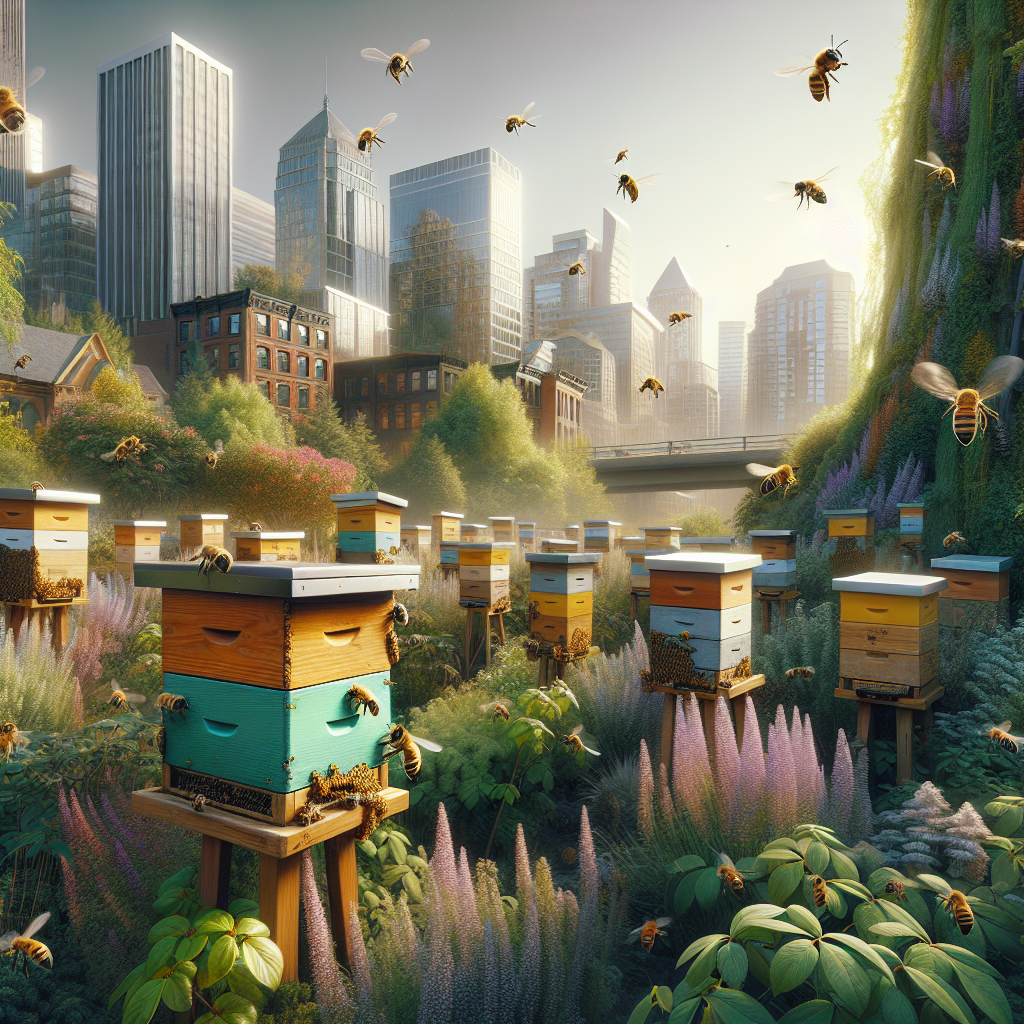Buzzing into a New Adventure: Urban Beekeeping in Oregon
As many of you know, Oregon’s dedication to staying green extends far beyond our extensive recycling programs or the hundreds of miles of bike paths winding through our scenic landscape like an artist’s brush stroke on canvas. If you’re not an Oregonian, you might be surprised to hear that our commitment to environmental stewardship is resonating right in the heart of our cities, where urban beekeeping is creating quite the buzz.
Cities Teeming with Bee Haven Spaces
Driving along Highway 26 from Seaside to Portland, one could easily mistake Oregon for an endless expanse of fir trees and breathtaking vistas. Yet nestled within the urban heart of cities like Portland, Eugene, and Salem, a resurgence of an age-old practice is molding our city-scapes into the prime real estate for bees. Indeed, small-scale urban beekeeping has taken root, exemplifying the resilience and energy of our unique, forward-thinking corner of the world.
Weaving their journey between quirky corner coffee shops, like Portland’s infamous Stumptown or the much-loved Wandering Goat Coffee Co. in Eugene, bees are slowly transforming our cities into a haven of bustling hives. Tucked away on rooftops like little secrets, hives are a common sight in places like Ladd’s Addition, where fragrant rose gardens create a bee’s dream buffet.

The Power of Small Actions, the Might of Local Communities
Harnessing the doctrine that small actions can result in big changes, urban beekeepers across Oregon are taking action, setting up hives in their backyards or community garden spaces like Portland’s Zenger Farm and Eugene’s Amazon Community Center’s garden. They’re not only harvesting sweet-tasting honey, getting the jump on their hay fever, or providing pollination for homegrown fruits and veggies – they’re also rescuing our future food sources. Local, small-scale beekeepers embody the same resilience and innovation that drive Oregon’s unmistakable spirit.
Few sights feel more authentically Oregonian than a solitary beekeeper, shrouded in white from head to toe, lovingly tending to their buzzing charges amongst our steel and concrete jungles. Whether it’s under the misty veil of a Portland winter morning or a perfectly clear blue Bend sky, you’ll see them performing their patient, careful dance.
The Sweet Taste of Success
Behind each amber drop of honey collected right from the heart of Portland, Salem, Bend, or Eugene, there lies countless stories of effort, resilience, and community engagement. Shops like Bee Local and Queen Right Colonies, dedicated to supporting and supplying local beekeepers, are testimony to this booming trend.
Local businesses are getting in on the act too. Consider Rogue Farms in Independence where bees are brought in for their Honey Kolsch Ale, or the trendy Pok Pok restaurant in Portland that sources local honey for its drinks. They’re not just doing those crooning about farm-to-table goodness a solid; they’re actively participating in saving the world one bee at a time.
Bridging the Gap between Bees and Humans
There’s something to be said about hardworking Oregonians reaching out to hardworking bees, forming these natural alliances in the heart of our cities. It’s a testament to Oregon’s environmental commitment and an homage to our quirky yet authentic spirit. We’re forging ahead in gray, drizzly weather, coffee cups in hand, beekeeping tools in the other – because that’s the Oregon way (and hey, the bees bloody well need us!).
We’ve long married the uncommon with the common; honeycombs springing up amongst skyscrapers is just another terrific chapter in the continuously unfolding saga. So, the next time you’re hiking towards Multnomah Falls or cycling through Sisters, remember that every sweet spoonful of Oregon honey is a tiny tribute to these winged heroes and the urbanites who’ve welcomed them. It’s the spirit of Oregon, encapsulated.
Through their efforts, urban beekeepers across our state are encouraging us to rethink the boundaries between the urban and the natural, shedding new light on how we interact with our environment. So, why not swing by your local garden center, or perhaps one of the urban beekeeping classes popping up across the state? Maybe it’s time for your own journey into honey.
